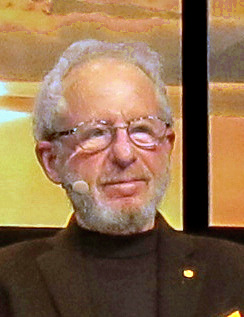A Quote by Nell Irvin Painter
Before science, before the eighteenth century, religion answered the questions, and so in the nineteenth century for instance there was a real jostling between science and religion over the truth and this is why Darwin was so controversial.
Related Quotes
Once upon a time, science, philosophy, and theology were disciplines largely undifferentiated from one another, and proving the existence of God was a fairly commonplace intellectual exercise. But as the scientific method became increasingly refined, particularly through the nineteenth century, science and religion grew apart.
Given that the nineteenth century was the century of Socialism, of Liberalism, and of Democracy, it does not necessarily follow that the twentieth century must also be a century of Socialism, Liberalism and Democracy: political doctrines pass, but humanity remains, and it may rather be expected that this will be a century of authority ... a century of Fascism. For if the nineteenth century was a century of individualism it may be expected that this will be the century of collectivism and hence the century of the State.
This much I can say with definiteness - namely, that there is no scientific basis for the denial of religion - nor is there in my judgment any excuse for a conflict between science and religion, for their fields are entirely different. Men who know very little of science and men who know very little of religion do indeed get to quarreling, and the onlookers imagine that there is a conflict between science and religion, whereas the conflict is only between two different species of ignorance.
Science has only two things to contribute to religion: an analysis of the evolutionary, cultural, and psychological basis for believing things that aren't true, and a scientific disproof of some of faith's claims (e.g., Adam and Eve, the Great Flood). Religion has nothing to contribute to science, and science is best off staying as far away from faith as possible. The "constructive dialogue" between science and faith is, in reality, a destructive monologue, with science making all the good points, tearing down religion in the process.
The private motives of scientists are not the trend of science. The trend of science is made by the needs of society: navigation before the eighteenth century, manufacture thereafter; and in our age I believe the liberation of personality. Whatever the part which scientists like to act, or for that matter which painters like to dress, science shares the aims of our society just as art does.
Oh, that's typical of you modern young men; you've nibbled at science and it's made you ill, because you've not been able to satisfy that old craving for the absolute that you absorbed in your nurseries. You'd like science to give you all the answers at one go, whereas we're only just beginning to understand it, and it'll probably never be anything but an eternal quest. And so you repudiate science, you fall back on religion, and religion won't have you any more. Then you relapse into pessimism...Yes, it's the disease of our age, of the end of the century: you're all inverted Werthers.
I have begun to feel that there is a tendency in 20th Century science to forget that there will be a 21st Century science, and indeed a 30th Century science, from which vantage points our knowledge of the universe may appear quite different than it does to us. We suffer, perhaps, from temporal provincialism, a form of arrogance that has always irritated posterity.








































